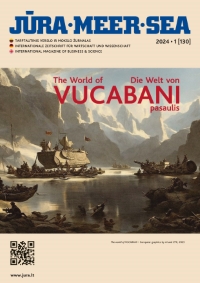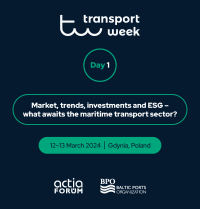The U.S. Department of the Interior has finalized changes to the post-Deepwater Horizon Well Control Rule, and the alterations are expected to create millions of dollars in savings for the offshore oil industry. By reducing inspection requirements for blowout preventers, cutting down on reporting requirements and making other regulatory changes, Interior expects to save America's offshore oil and gas industry about $80 million per year.
“[The] final rule puts safety first, both public and environmental safety, in a common-sense way,” said U.S. Secretary of the Interior David Bernhardt. “Incorporating the best available science, best practices and technological innovations of the past decade, the rule eliminates unnecessary regulatory burdens while maintaining safety and environmental protection offshore."
The rulemaking changes 68 provisions out of a total of 342 in the original Well Control Rule. The new set of requirements include several design alterations for blowout preventers, like limiting the number of connection points to the BOP, requiring a high-flow receptacle on the BOP to allow for better ROV-powered control, and specifying an array of rams of differing types in order to maximize BOP effectiveness.
The new rule also provides for reduced BOP pressure testing duration and frequency, which will cut back on operating expenses. Instead of pressure-testing the BOP for 30 minutes every 14 days, as is required under the current rule, operators will only have to test for five minutes every 21 days (with an approved condition monitoring program).
In addition, the rule removes regulatory oversight of the independent testing organizations that certify blowout preventers. The original Well Control Rule required offshore operators to have their BOPs inspected by a BSEE Approved Verification Organization (BAVO). However, BSEE now contends that there is no need for it to regulate BOP inspectors. "Additional BSEE oversight and submittal to become a BAVO is unnecessary. The BAVO system created by the [Well Control Rule] increases procedural burdens and costs without delivering meaningful improvements to safety or environmental protection," the agency said.
Debate over safety
Industry representatives suggested that not only would the new rule save money and increase flexibility, it would also make offshore E&P safer. "The BSEE revisions to the Obama-era well control rule are common sense and will go far to increase the safety of all those who work in the offshore," said Independent Petroleum Association of America President Barry Russell. "The changes in the new rule allow for producers to be nimbler, with more adaptive guidelines based on the most up-to-date insights and innovative technology in the offshore exploration and development field.”
The American Petroleum Institute, the largest organization representing the U.S. oil and gas industry, echoed this view. "The revision strengthens the [well control] rule and enhances a robust regulatory framework to ensure updated, modern, and safe technologies, best practices, and operations," said API's VP of upstream Erik Milito.
Opponents of offshore drilling were less convinced. “By significantly weakening the well control rule—the one modest safety reform created after the Deepwater Horizon tragedy—the Administration is willfully ignoring the lessons of the past and putting our shore communities at greater risk of a catastrophic oil spill," said Sen. Bob Menendez (D-NJ) in a statement.
Bob Deans, director of strategic engagement at the Natural Resources Defense Council (NRDC), also voiced disapproval. “The well control rule was one of the most important actions we took, as a nation, in response to the [Deepwater Horizon] disaster at sea. The rule draws directly from lessons learned from that debacle," Deans said. "If the Trump administration’s final rule weakens these protections . . . it will put our workers, waters and wildlife at needless risk."
The Maritime Executive










